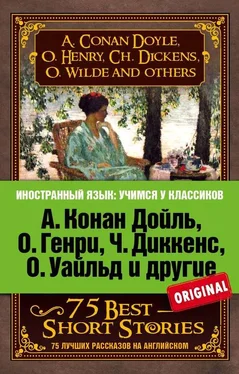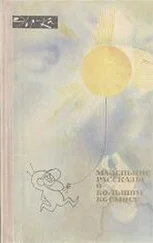FitzGerald’s notes– Edward FitzGerald (1809–1883), an English poet and writer, famous for his translations of Omar Khayyam’s poetry and notes on it
crème de menthe– mint liqueur
Durbar– in India, an imperial assembly to mark some state occasion
Lapland– an area in northern Europe, in Norway, Sweden and Finland, mainly within the Arctic Circle; it was named for the Lapp, or Sami, who inhabited the region for many centuries.
Tyrian scarlet– a natural dye of darkred colour widely used in antiquity
Kipling– Rudyard Kipling (1865–1936), an English writer, poet and novelist, the Nobel Prize winner in Literature in 1907
Tuscany– a region in westcentral Italy
Darwin– Charles Darwin (1809–1882), an English naturalist, the author of the theory of evolution by natural selection
Austin– Alfred Austin (1840–1921), a British poet and journalist, a Poet Laureate
halma– a board game, like checkers, invented in 1880
Boxing Day– December 26, the day after Christmas; traditionally boxes of gifts were given to servants, employees and the poor on this day.
Titian(1488–1576) – a great Italian Renaissance painter of the Venetian schoo
Maeterlinck– Maurice Maeterlinck (1862–1949), a famous Belgian poet and playwright, the Nobel Prize winner in Literature in 1911
Sicily– the largest island in Italy, in the Mediterranean Sea
Bacchanalian procession– a procession of drunken people
Bacchus– in Roman mythology and religion, the god of wine and ecstasy
Lord Cornwallis– Charles Cornwallis, the 1st Marquis Cornwallis (1738–1805), a British soldier and statesman known for his defeat at Yorktown during the American Revolution
Yorktown– a historic town in southeastern Virginia, USA, noted for the siege of 1781 during the American Revolutionary War
the wars of York and Lancaster– also known as the Wars of the Roses, civil wars between the Houses of York and Lancaster for the English throne in 1455–1485
Elizabeth– Elizabeth I (1533–1603), queen of England in 1558–1603; her reign is traditionally called the Elizabethan Age.
bizarrerie= peculiarity ( German )
Diogenes(the 4th century BC) – an ancient Greek philosopher known for his rejection of luxury and original way of life
Saint Germain(s)– a western suburb of Paris, on the left bank of the Seine, with park and palace built for Louis XIV in 1673
William– William IV (1765–1837), king of Great Britain and Ireland (1789–1830) who accepted the Reform Act of 1832 which reduced the power of the crown over the parliament and the government
Whig and Tory– two main political parties of the 18th century; the term ‘Whig’, of Scottish origin, was applied to non-conformists who insisted on reducing the power of the king, and the Irish term ‘Tory’ was applied to those who supported hereditary rights to the throne.
Debenham– a town in Suffolk, a historic county in eastern England
Edinburgh– the capital of Scotland, located in southeastern Scotland
bon vivant– a merry man who enjoys life ( French )
wynd= lane, side street
quid pro quo= this for that ( Latin )
gig– a light, open, two-wheeled one-horse carriage, first appeared in the 17th century in Paris
cras tibi– the second part of the expression ‘Hodie mihi cras tibi’ – ‘Today for me, tomorrow for you.’ ( Latin )
the Jacobean style– the style in literature, art and architecture of the Jacobean age, the time of the reign of James I of England (1603–1625); the Jacobean age followed the Elizabethan age, and the two had very much in common.
Assizes– court sessions held in every county of England to try civil and criminal cases before High Court Judges
Mathematical Tripos– a highly competitive mathematical contest at the University of Cambridge
Senior Wrangler– a student who takes first-class honours in Mathematical Tripos
Saint Anthony(251–356) – a Christian monk who lived in Egypt, practiced ascetic life and withstood many temptations in his legendary combat against the Devil; Saint Anthony is considered the founder of monasticism.
divertissement– here: distraction from work ( French )
Conic Sections, Cycloid Oscillations, Principia, Quaternions, Thermodynamics– famous scientific and philosophical works on mathematics and physics
Dracula– a fictional character, a villain with supernatural powers and vampire, invented by Bram Stoker in his famous novel; the character is based on Vlad III Dracula, prince of Wallachia, known for his cruelty.
Munich– the capital of Bavaria, the land in southern Germany, founded in 1157
maitre d’hotel= hotel manager ( French )
Ja, mein Herr= Yes, sir ( German )
Walpurgis nacht– Walpurgis Night, a holiday on April 30, celebrated in northern Europe and Scandinavia; people light fires, sing and make loud noise to keep off the evil forces; on this day the witches are said to gather on Brocken, the mountain in Harz, Germany.
copse= poet. coppice
Gratz– a city in southeastern Austria and the capital of Styria, founded in the 9th century
Styria– a state in southeastern Austria on the border with Slovenia
lethargy– 1) unconsciousness resembling deep sleep; 2) drowsiness, apathy, indifference, inactivity.
Читать дальше
Конец ознакомительного отрывка
Купить книгу












